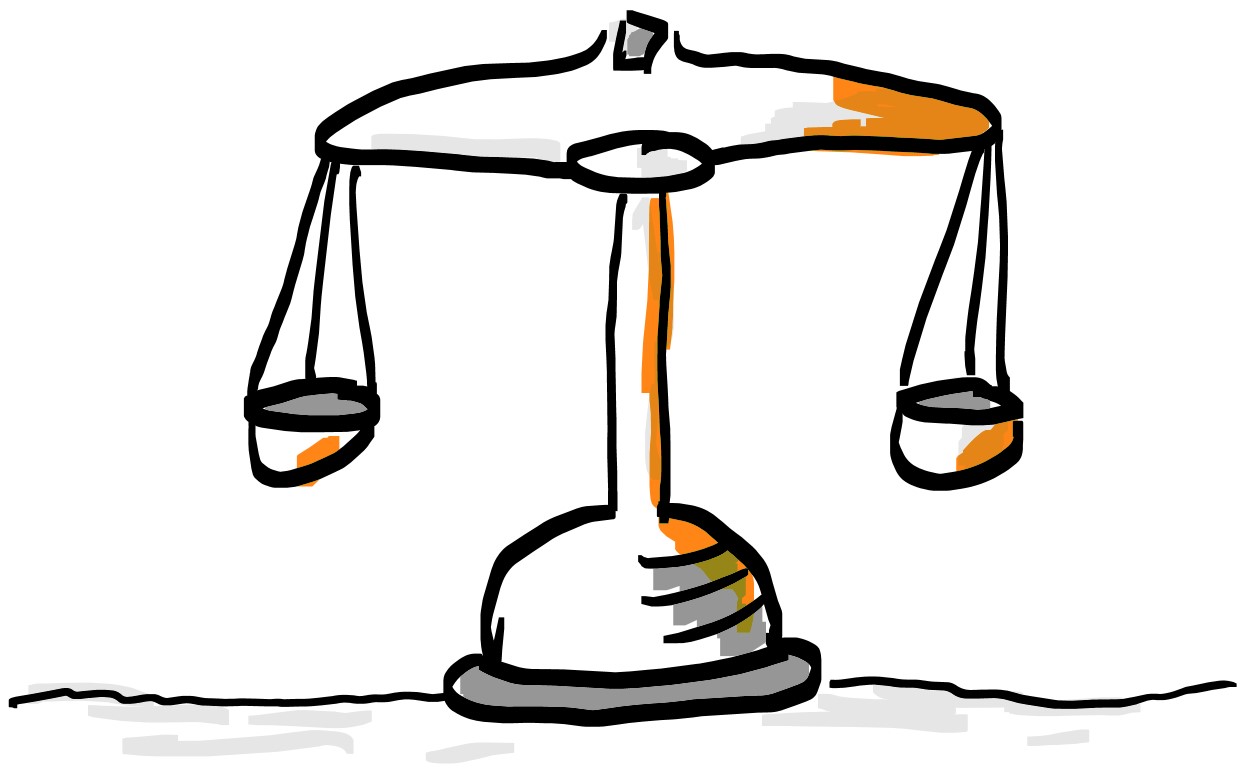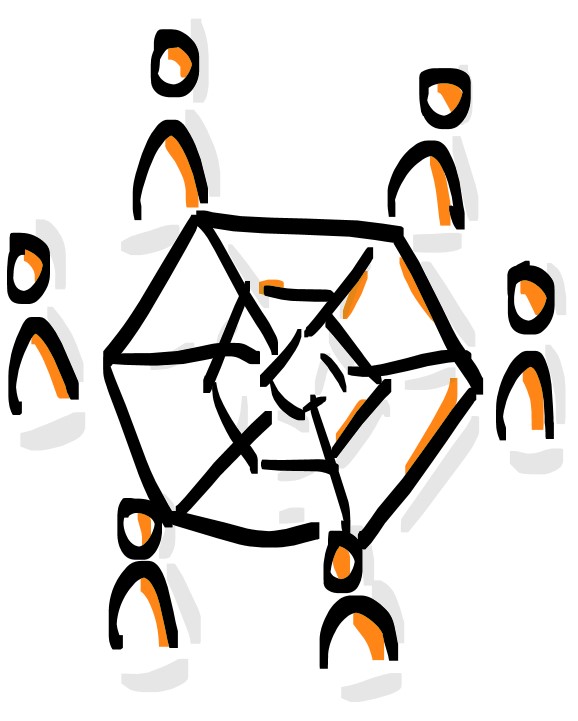Are you part of the management team? Department, team, or project manager? If so, there’s a good chance that you find yourself occasionally confronted with accusations and reproaches from employees, colleagues, superiors, or customers. Relax: You are not to blame. You are responsible. Do you think this is a sophism? Where’s the big difference? The answer is: In the outcome.
When something goes wrong, we ask “Who is to blame”? As entertaining as this search for the culprit and the ensuing “trial” may be at times, it is as little goal-oriented as it contributes to a good result in the short, medium or long term.

The Ingredients for the Dish
The concept of guilt is a common pattern of thought, action and reaction in Western culture. We learn very early: if you break rules and make mistakes, you will be punished. Yes, even “life punishes us” if we are “too late”. And not even not knowing protects us from punishment!
It is these four components that play a role in guilt-and-sacrifice thinking:
- Law and morality, the set of rules binding on all
- Perpetrator with a conscious or unconscious act that violates the rulebook
- The victim who has suffered harm as a result of this act and is in the “right”
- Judge, the neutral authority who decides on the seriousness of the guilt and on the sentence
Preventing Excellence – Here’s How
When we negotiate guilt, it is at least implicitly always about the right or wrong path from which someone has allegedly drifted. And it is about punishment, i.e. some form of compensation.
No question: they exist, these dishonest motives and actions of villains. All those who gain an advantage at the expense of others and sometimes even in a criminal way. And so it is good that there are ways to prosecute such cases.
In ordinary day-to-day interaction, however, and especially in the business world, in teamwork, in discussions with customers or in cooperation between superiors and employees or project managers and customers, the blame principle is counterproductive and prevents excellent performance because one tries to apply a principle where it does not work.
Because there might be an etiquette, but generally applicable or even binding rules and laws? No such thing. Nor is there a neutral magistrate who could mediate or “judge” between the parties involved. And when it comes to compensation, things look equally bad: What is compensation supposed to be like in the everyday business where mistakes have been made?
Apart from a submissive attitude with a guilty conscience and an equally guilty feeling: How can an account manager compensate his sales manager for a blown deal with the customer? What can the project manager offer the steering committee for a deadline delay?
Devote attitude and guilty conscience? Neither contributes anything concretely to solving the problem. On the contrary: They create diffuse pressure, create a bad mood and the (often unfortunately justified) feeling of having been treated unfairly. A tit-for-tat response – of whatever kind – is often only a matter of time (/1/).

That serves him right! And me too. Unfortunately!
Blame and victimhood always distract from one’s own responsibility in a very convenient way.
Those who have someone to be blamed stage themselves or others as victims of external circumstances for which someone else is accountable. The questions about the actual reasons, one’s own part in the situation or in the solution? They do not arise in the blame-victim system. Let the one who made the mess be the one to face it!
We are making a big mistake with this, because we are – regardless of our rank – always affected by the problem in some way and dependent on the solution. In a system, the following applies: If one person has a problem, everyone has it. So every single one of us contributes to the success of the business in everything we do or don’t do. And that is why everyone – from doormen to management – bears the same responsibility.
This responsibility consists of ensuring the success and at least the continued existence of the company within the scope of one’s own possibilities. If necessary, also outside the assigned area of duty.
In this sense, blaming and victim thinking is reckless inaction and failure to help. In doing so, we put the enterprise and ourselves at risk.
Win-Win Instead of Lose-Lose!
If you want to be successful, you accept the fact that many people always contribute to a result. People always do what they think is right or necessary for themselves or others at a given moment.
In this sense, equality dominates all our actions – regardless of hierarchies and decision-making powers. This also means that success can only ever be an approximation to a personal ideal.
All those seeking success would therefore ask what common success is for everyone and what they can contribute to get back on course for it.
This is exactly what we have the chance to do every day.
Notes
- /1/ Sometimes, these return journeys happen without regard for one’s own losses: the desire for a common downfall is then often downright celebrated.
- /2/ As a small philosophical interjection: Do we really have a right to do this? When are we really allowed to assume dishonest motives, when to explicitly assign blame? Are we allowed to do so when someone acts differently than we expect based on our own or generally accepted presumed values? Who gives us this right? The superior, the owner, the so-called common sense?
- /3/ “Motivation” by pressure is still a very common leadership tool, which yes, indisputably, can produce certain successes. Mind you, by means of coercion, and not with motivation, which presupposes voluntariness. Through pressure, however, the chance for excellent team performance is given away, because this creates inner resistance that prevents the development of energy and creativity and reduces loyalty.
- /4/ This can and will mean that personnel and structural consequences are drawn: A process, for example, is adjusted or an unreliable employee is replaced by a more reliable one.
 In this sense, blaming and victim thinking is reckless inaction and failure to help. In doing so, we put the enterprise and ourselves at risk.
In this sense, blaming and victim thinking is reckless inaction and failure to help. In doing so, we put the enterprise and ourselves at risk.